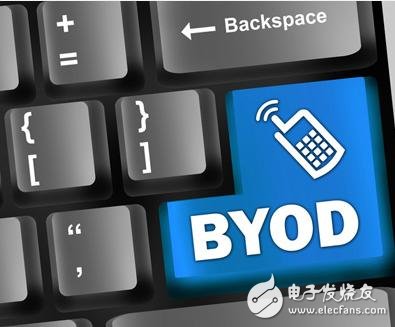The widespread adoption of mobile technology is fueling the fire, making the medical industry continue to face the requirements of successive regulations. As hospitals and some medical companies have successively adopted mobile solutions, the development trend of Bring Your Own Device (BYOD: Bring Your Own Device) has led the information technology department to take corresponding measures to ensure strict security measures and ensure its dependence. In view of the use of mobile health tools (mHealth tools) by clinicians and staff, the hospital will need to adopt stronger and more comprehensive safety measures in 2013. According to a survey of 130 hospitals conducted by Aruba Networks, 85% of the equipment supports the personal devices used by doctors and staff during work. Hospital staff and clinicians can check their personal emails and their work emails on the same device, check electronic medical records, query information about drug interactions, and use mobile secure file transfer applications to view experimental results or radiographic images Or find a nanny for going out at night. Compared with the past, work and personal life are more complex and intertwined. These devices allow us to obtain the information we need at any time and combine our work and life together. The survey also showed that 83% of the devices that support doctors and hospital staff to use personal devices provide network support for Apple ’s iPad. Today's smartphones and tablets make it easier for us to check emails, check news, and browse social media sites than before. At the same time, we can also fax and sign treatment plans for approval. The development trend of BYOD will make practitioners in the medical industry more connected and more accessible to information. However, BYOD also raised some questions about how hospitals can use their mobile devices to the fullest extent while ensuring existing security strategies. Most medical institutions will adopt BYOD in the coming year. Smartphones and tablets are adopted at such a high rate that hospitals support these mobile devices almost passively. Therefore, when a radiologist, surgeon, or oncologist wants to use their own equipment, the information technology department sometimes has no choice but to provide technical support and ensure safe use. In many cases, the adoption of BYOD is positive for hospitals. It can provide faster response, increase the contact with doctors, and comprehensively improve the care of patients. However, for the staff of the information technology department responsible for providing medical safety regulations, they are faced with new and complex challenges, namely, to provide technical support for medical experts to bring their own equipment into the hospital, and at the same time Ensure the confidentiality and security of patient health information. Hospital IT staff understand that this is not just a technical issue. The adoption of BYOD also requires changes to medical regulations and policies, as well as additional guidance for practitioners using mobile devices. 3Kw Solar Inverter System,Pv Storage System,Residential Storage Inverter System,Solar Inverter Charger System Bosin Power Limited , https://www.bosinsolar.com